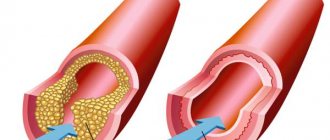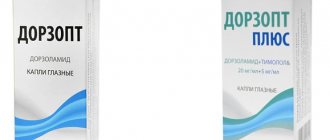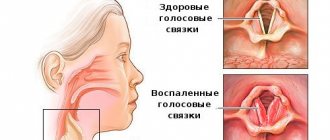Home » Treatment of drug addiction » Treatment of addiction to pharmaceutical drugs » Treatment of addiction to Tussin Plus
To treat colds, flu and ARVI, Tussin Plus cough syrup is prescribed. It contains two main substances: Guainephesin and Dextromethorphan. The former increases the production of bronchial mucus and promotes expectorant effects. Dextromethorphan reduces the frequency of coughing and relieves irritation from the lining of the bronchi and lungs. The duration of activity of the drug is 5-6 hours.
Tussin Plus is sold in pharmacies with a doctor's prescription. This medicine helps relieve cough well and does not cause drowsiness. However, it is worth knowing that Dextromethorphan is close in strength to Codeine, which, in dosages exceeding the therapeutic dose, manifests itself as a narcotic.
General characteristics and composition of the drug
Today, Tussin Plus is considered one of the popular drugs to combat respiratory diseases. The manufacturer of this drug is Health Life. The medication contains two active components:
- Guaifenesin.
- Dextromethorphan hydrobromide.
In addition, additional ingredients are used in the manufacture of the medicine, such as:
- glycerol;
- corn syrup;
- lemon acid;
- cherry flavoring;
- menthol;
- sodium saccharinate;
- water.
Tussin Plus syrup is available in 118 ml bottles.
The medicine has an orange-red hue and a faint cherry aroma. The product has a sweet taste. Many patients claim that this property makes it convenient to use.
Features of the drug's action
The syrup suppresses coughing attacks and helps remove mucus from the respiratory system. The components included in this medication make the mucus more liquid. Thanks to this, it is easily removed from the bronchi.
Together with sputum, bacteria and viruses that provoke the disease come out of the body. The person's condition is improving.
Thus, the drug is recommended by specialists to eliminate attacks of dry cough in patients with infectious and viral pathologies of the respiratory system.
For childhood diseases (for example, whooping cough), Tussin Plus syrup is also prescribed. The medication contains substances that do not have analgesic or hypnotic properties. They do not have a depressing effect on the respiratory center.
The components used in the manufacture of the product do not provoke drug dependence or addiction. Additional ingredients (corn syrup, glycerin) help moisturize and soften the pharyngeal mucosa, reduce discomfort and tissue irritation. The medicine lasts for about 3–4 hours. The drug is quickly absorbed from the gastrointestinal tract.
It is metabolized in the liver and excreted in sputum. Inactive metabolites of the drug are excreted by the kidneys.
In what cases is the remedy prescribed?
In the presence of pathologies of the respiratory system that are infectious, viral or inflammatory in nature and are accompanied by a dry cough without sputum, Tussin Plus is recommended. Instructions for use indicate that this medicine is used for therapy for the following pathologies:
- acute form of laryngitis or pharyngitis;
- inflammatory processes in the sinuses, trachea;
- tuberculosis;
- bronchial asthma;
- flu;
- cystic fibrosis;
- inflammatory processes in the lungs or bronchi.
Contraindications to the use of the medication
The drug should not be used in the presence of the following conditions:
- The patient is under two years of age.
- Severe pathologies of the central nervous system.
- Ulcers of the digestive organs.
- Previous bleeding of the gastrointestinal tract.
- A wet cough with a large amount of sputum.
The medication is not prescribed if there is hypersensitivity to the ingredients included in its composition.
Additional Information
It is not recommended to use Tussin Plus simultaneously with medications containing the same components that are part of this medicine. The use of the medication at any stage of gestation is contraindicated.
This is due to the fact that the active substances used in the production of syrup negatively affect the health of the expectant mother and child. If it is necessary to use the product during lactation, breastfeeding should be stopped.
How to take the medicine correctly?
If the specialist does not prescribe a specific dosage of the medication to the patient, it must be measured using a measuring cup, which is in the package with the Tussin Plus drug.
The instructions for use indicate that it is recommended to use this mixture three times a day. Children from two to six years old are prescribed half a teaspoon of the product. The medication is drawn up to the 0.5 ml mark on a measuring cup. For patients aged 6 to 13, a higher dose of medication is recommended. It is equal to one teaspoon of syrup.
The medication is taken every 4 hours. Persons twelve years of age and older are prescribed the medicine in the amount of two measuring cups. The duration of therapy with this drug is three to four days. However, if necessary, the course of its administration is increased. This decision must be made by a specialist depending on the condition of the individual patient.
Side effects while taking the medication
Most patients tolerate this drug quite well. However, some patients experience signs of an allergic reaction. They are associated with increased sensitivity to the components that make up the drug. In this case, patients experience the following symptoms:
- feeling of nausea and vomiting;
- dizziness;
- itching of the skin;
- rashes, the appearance of urticaria;
- decrease in blood pressure.
If the patient experiences these symptoms, the doctor decides to stop the course of therapy and replace the drug.
Medicines with similar effects
If signs of individual intolerance appear, the specialist selects products that are safe for the patient and give a similar effect. The analogues of the drug "Tussin Plus" are as follows:
- "Padevics".
- "Codeterp".
- "Glycodin."
- "Tedeen."
- "Kodarin."
- "Codepsin."
One of the main criteria for patients to choose a drug is its financial affordability. How much does Tussin Plus cost? The average price for this product in the Russian Federation is approximately 180 rubles.
Customers' opinions on the effectiveness of the drug
You can find a lot of reviews about the drug “Tussin Plus”. It should be emphasized that most of them indicate the positive properties of this medicine. Patients claim that the product is quite effective and safe to use (provided that the instructions are strictly followed).
Some people claim that the drug helps to cope with cough even in cases where other medications do not produce a noticeable result. The syrup, according to consumers, turned out to be more effective compared to analogues that have a higher price.
It is often used as a method of treating respiratory system infections in children.
In young patients, while using the medication, improvement quickly occurs. Coughing attacks disappear, mucus leaves the bronchi. The infectious process stops and the child recovers.
However, not all patients believe that the medication is effective. Some people used it for several days but did not experience any noticeable improvement. There are patients who were dissatisfied with the taste of the syrup. Not everyone likes the composition of the medicine either.
Others consider it not natural enough and safe for the body. The unnatural shade of the syrup also raises doubts among consumers. They believe that this color is due to the presence of additional artificial additives (dyes) that negatively affect human health.
In addition, the product cannot be used to treat young patients under two years of age.
Conclusion
“Tussin Plus” is a syrup that is used as a method of treating dry cough for various pathologies of the respiratory system. The medicine helps remove mucus from the bronchi and moisturize the tissues of the larynx. According to many consumers, the product is highly effective.
In addition, the price of this medication is low. However, it should be remembered that the drug can cause symptoms of individual intolerance.
In this case, it is necessary to contact a specialist to prescribe another medication with a similar effect that will not provoke unwanted reactions in the body.
It is not recommended to change the medicine and treatment regimen on your own. During the course of therapy with this syrup, the patient may experience side effects in the form of disturbances in the digestive system, dizziness, and rash. In such a situation, it is also necessary to stop taking the medication and decide on choosing another drug.
Cough syrup with codeine: effects on the body
Codeine helps cough, has analgesic and antidiarrheal effects. In combination with sedatives, it is used as a sedative.
- The antitussive symptomatic effect occurs due to inhibition of the excitability of the cough center in the brain. It should be noted that the substance does not affect the cause of cough.
- The antidiarrheal effect is due to the relaxation of intestinal smooth muscles under the influence of the drug, which causes a weakening of peristalsis.
- The analgesic effect is caused by the effect on brain receptors sensitive to opiates, thereby increasing the pain threshold.
When taken orally, the substance begins to act within 30-40 minutes, reaches its maximum effect an hour after administration, and lasts 4-6 hours. It is biotransformed in the liver, completely eliminated from the blood within 12 hours, and from urine within four days.
Find out treatment recommendations without leaving home for free
To select a treatment plan, you just need to leave a request, we will contact you to select the time and specialist you need
Submit your application
Tussin plus
Clinical and pharmacological group
Antitussive and expectorant drug
Active ingredients
- guaifenesin - dextromethorphan hydrobromide (dextromethorphan)
Release form, composition and packaging
Syrup
orange-red in color with a faint cherry odor.
| 5 ml | |
| guaifenesin | 100 mg |
| dextromethorphan hydrobromide | 10 mg |
Excipients: citric acid, flavoring, glycerol, high fructose corn syrup, sodium saccharin, sodium benzoate, cherry flavor, FD&C red No. 40, water.
118 ml - bottles made of polyethylene terephthalate (1) complete with a measuring cup - cardboard packs.
pharmachologic effect
Guainefesin has an expectorant effect by increasing the secretion of liquid components of bronchial mucus, depolymerization of acidic mucopolysaccharides, and increasing the activity of the ciliated epithelium.
Dextromethorphan suppresses excessively intense afferent impulses from the mucous membrane of the respiratory tract, increases the cough threshold, reducing the intensity of a dry irritating cough.
Dextromethorphan is a D-isomer of levorphanol, its potency is close to codeine, but does not have analgesic properties and does not inhibit the respiratory center and the activity of the ciliated epithelium.
The duration of the antitussive effect is 5-6 hours.
Pharmacokinetics
Guaifenesin is rapidly absorbed from the gastrointestinal tract (25-30 minutes after oral administration). T1/2 - 1 hour. Penetrates tissues containing acidic mucopolysaccharides. Metabolized in the liver. It is excreted by the lungs (with sputum) and the kidneys in the form of inactive metabolites.
Dextromethorphan is quickly absorbed into the gastrointestinal tract and its effect begins to appear within 15-30 minutes.
Dextromethorphan is metabolized primarily by liver enzymes, undergoing O-demethylation, N-demethylation and partial binding to glucuronic acid and sulfates.
In humans, (+)-3-hydroxy-g4-methylmorphinan, (+)-3-hydroxymorphinan and traces of unmetabolized drug may be detected in urine after oral administration.
Indications
- relief of symptoms of colds, flu, ARVI, accompanied by cough.
Contraindications
- - severe organic diseases of the central nervous system;
- - peptic ulcer of the stomach and duodenum;
- - gastric bleeding (history);
- - wet cough with copious sputum discharge;
- - simultaneous use of drugs containing substances included in the drug Tussin Plus;
- - children under 6 years of age;
- - hypersensitivity to the components of the drug.
- with caution
in patients with renal and liver failure, bronchial asthma, during pregnancy and lactation.
Dosage
- Take orally after meals using a teaspoon or measuring cup.
- For adults and children over 12 years old
- 2 teaspoons every 4 hours. - For children (6-12 years old)
- 1 teaspoon every 4 hours.
Dyspepsia (nausea, vomiting), diarrhea, exacerbation of gastric and duodenal ulcers, dizziness, headache, drowsiness or insomnia, increased excitability (especially in children), allergic reactions (skin rash, urticaria, hyperthermia).
Overdose
- Symptoms:
Particularly high doses of guaifenesin may cause nausea and vomiting. - Treatment:
measures should be taken to replenish body fluids and monitor electrolyte levels. - Symptoms caused by dextromethorphan:
agitation, dizziness, respiratory depression, impaired consciousness, decreased blood pressure, tachycardia, muscle hypertonicity, ataxia. - Treatment:
gastric lavage, taking activated carbon, symptomatic therapy.
Drug interactions
Tussin Plus is compatible with bronchodilators, antimicrobial agents, and cardiac glycosides.
Tussin Plus is not prescribed simultaneously with antitussives (including those containing codeine) and mucolytic drugs.
Incompatible with drugs that inhibit MAO (including furazolidone, procarbazine, selegiline), which, when used simultaneously, can cause adrenergic crisis, collapse, coma, dizziness, agitation, increased blood pressure, hyperpyrexia, intracranial bleeding, drowsiness, nausea, cramps , tremor.
Amiodarone, fluoxetine, quinidine, by inhibiting the cytochrome P450 system, can increase the concentration of the drug in the blood.
Tobacco smoke can lead to increased secretion of glands while inhibiting the cough reflex.
Tussin plus
Tussin Plus is a combined antitussive drug with expectorant action.
Release form and composition
The dosage form of Tussin plus is syrup: a red-orange solution, transparent, with a slight cherry odor, without sediment or foreign particles (118 ml polyethylene terephthalate bottle, 1 bottle in a cardboard box complete with a dosage cup).
Composition of Tussin plus (5 ml syrup):
Excipients: citric acid, glycerol (anhydrous glycerin), flavoring agent, corn syrup, sodium saccharinate, sodium benzoate, levomenthol, cherry flavor, FD&C red charm, purified water.
Pharmacological properties
Pharmacodynamics
The expectorant effect of guaifenesin, the active component of Tussin Plus, is due to the stimulation of secretory cells of the bronchial mucosa that produce neutral polysaccharides, depolymerization of acidic mucopolysaccharides, a decrease in viscosity and an increase in the volume of sputum, activation of the ciliary apparatus of the bronchi, facilitating the removal of sputum and facilitating the transition of an unproductive cough to a productive one.
Another active component of the drug, dextromethorphan hydrobromide, helps suppress excessively intense afferent impulses from the mucous membrane of the respiratory tract, increase the cough threshold, and reduce the intensity of a dry irritating cough. Due to the inhibition of the excitability of the cough center, dextromethorphan is able to suppress a cough of any origin. Moreover, the substance in therapeutic dosages does not have analgesic, narcotic or hypnotic effects.
The duration of the antitussive effect is 5–6 hours.
Pharmacokinetics
After oral administration, guaifenesin is rapidly absorbed from the gastrointestinal tract within 25–30 minutes. Its half-life (T1/2) is 1 hour. The active substance is able to penetrate tissues containing acidic mucopolysaccharides. Guaifenesin is metabolized in the liver. Excretion occurs through the lungs (with sputum) and in the form of inactive metabolites through the kidneys.
Dextromethorphan hydrobromide is quickly absorbed from the gastrointestinal tract, and its effect begins to appear after 15–30 minutes.
Metabolism occurs mainly with the participation of liver enzymes through O- and N-demethylation and partial binding to sulfates and glucuronic acid.
In humans, (+)-3-hydroxymorphinan, (+)-3-hydroxy-1H-methylmorphinan and traces of the unmetabolized substance may be observed in urine after oral administration.
Indications for use
According to the instructions, Tussin Plus is indicated for use for colds, flu, and acute respiratory viral infections accompanied by cough.
Contraindications
Absolute:
- peptic ulcer of the stomach and duodenum;
- stomach bleeding (history);
- severe organic diseases of the central nervous system;
- wet cough with copious sputum discharge;
- simultaneous use of drugs that contain guaifenesin and/or dextromethorphan;
- children under 6 years of age;
- increased individual sensitivity to any component in Tussin Plus.
Relative (use of the drug requires caution):
- impaired renal and/or liver function;
- bronchial asthma;
- pregnancy and lactation period.
Instructions for use of Tussin plus: method and dosage
Tussin plus syrup is taken orally, after meals, using a dosage cup or teaspoon.
Recommended dosage regimen:
- adults and children over 12 years of age: two teaspoons every 4 hours;
- children from 6 to 12 years: one teaspoon every 4 hours.
Side effects
During treatment with the drug, the following adverse reactions may occur: nausea, vomiting, dyspeptic disorders, diarrhea, exacerbation of gastric and duodenal ulcers, headache, dizziness, insomnia or drowsiness, increased excitability (especially in children), allergic reactions in the form of skin rash , urticaria, hyperthermia.
Overdose
Guaifenesin, in particularly high doses, can cause nausea and vomiting. In case of prolonged vomiting, it is necessary to take measures to replenish fluid in the body and monitor the level of electrolytes.
An overdose of dextromethorphan can lead to the development of dizziness, agitation, respiratory depression, impaired consciousness, decreased blood pressure, tachycardia, muscle hypertonicity, and ataxia.
In case of an overdose of Tussin plus, it is recommended to lavage the stomach, take activated charcoal, and carry out symptomatic therapy.
special instructions
During treatment with the drug, you should take sufficient fluid.
While using Tussin Plus, your urine may turn pink.
When testing for 5-hydroxyindoleacetic acid in urine (using a nitrosonaphthol reagent), the result may be falsely high due to the influence of guaifenesin metabolites on urine color. The drug must be stopped 2 days before urine collection for this analysis.
Guaifenesin and its metabolites may also change color when determining the concentration of vanillylmandelic acid in the urine and cause a false increase in the results of the analysis with it for catechins. You should stop taking guaifenesin 2 days before collecting urine for this test.
A dosage cup is included with Tussin Plus. One TSP division corresponds to 5 ml - one teaspoon.
Impact on the ability to drive vehicles and complex mechanisms
Since side effects such as dizziness and drowsiness are possible while taking the drug, caution must be exercised when driving or performing any activities that require a quick psychomotor reaction and high concentration.
Use during pregnancy and lactation
Pregnant and breastfeeding women should prescribe Tussin Plus with caution and in cases where the expected benefit to the mother is higher than the potential risk to the fetus/child.
Use in childhood
The use of the drug in children under 6 years of age is contraindicated.
For impaired renal function
Patients with renal failure should take Tussin Plus with caution.
For liver dysfunction
Liver dysfunction is a relative contraindication to the use of the drug.
Drug interactions
- bronchodilators, antimicrobial agents, cardiac glycosides: compatible with guaifenesin and dextromethorphan;
- antitussives (including those containing codeine), mucolytic drugs: simultaneous use with guaifenesin and dextromethorphan is not recommended;
- drugs that are monoamine oxidase inhibitors (including selegiline, procarbazine, furazolidone): combined use with Tussin plus can cause dizziness, increased blood pressure, agitation, drowsiness, tremor, nausea, spasms, adrenergic crisis, coma, collapse, intracranial bleeding, hyperpyrexia;
- fluoxetine, amiodarone, quinidine and other inhibitors of the cytochrome P450 system: possible increase in the concentration of the drug in the blood;
- Tobacco smoke: can lead to increased secretion of glands while suppressing the cough reflex.
Analogs
Analogues of Tussin Plus are: Kodarin, Goikodin, Codeterp, Codepsin, Tedein, Terpinkod, Codterpin, Kolelac and others.
Terms and conditions of storage
Store at temperatures between 8 and 25 °C. Do not store in the refrigerator.
Keep away from children.
Shelf life – 3 years.
Conditions for dispensing from pharmacies
Dispensed by prescription.
Reviews about Tussin plus
Most reviews about Tussin Plus are positive. The main advantage of the drug is its speed of action; within 15–20 minutes after taking the syrup, its expectorant effect appears, the cough weakens and the patient’s condition improves.
Users report that it is undesirable to overdose the medicine, as in this case side effects such as nausea and dizziness (including impairment of consciousness) are likely.
The taste of the drug causes conflicting opinions. Children tend to like the cherry flavor and color of the syrup.
Price for Tussin Plus in pharmacies
The price for Tussin Plus for a 118 ml bottle is approximately 150 rubles.
Codeine syrups
Let's look at which syrups contain codeine, a substance with a narcotic effect. It is necessary to strictly observe the prescribed dosage, because use in increased doses causes addiction and further withdrawal symptoms. There is also a high risk of serious poisoning. All drugs containing codeine are dispensed only with a prescription from your doctor.
Codelac syrup with codeine
The syrup contains codeine phosphate, a derivative with analgesic properties. The substance has an analgesic, mild sedative effect on the nervous system, and antitussive effect. Long-term use of syrup provokes the development of drug addiction.
Kofex
Kofex is a cough syrup with codeine, a combination drug whose effect is determined by the components of the composition. Used to treat debilitating cough of an allergic or infectious nature. Excessive doses cause drowsiness, confusion, impaired mental and physical activity, sudden mood changes, and agitation. In some patients, it may provoke the development of opioid dependence even when used in therapeutically prescribed doses.
Tussamag with codeine
The drug is intended to relieve cough symptoms in bronchitis or bronchopneumonia, relieve pain in migraines and neuralgia. During the course of treatment with the drug, the consumption of alcoholic beverages is prohibited, and abstinence from driving vehicles and other activities that require concentration and speed of reactions are prescribed.
Promethazine syrup with codeine
The drug is used as an antitussive, analgesic, antiallergic agent for the symptomatic treatment of acute respiratory diseases. Promethazine depresses the central nervous system and has a sedative, antipsychotic, and hypnotic effect. In combination with codeine, it relieves severe coughing attacks. Do not take with ethanol.
In addition to syrups with codeine, other dosage forms containing the substance are produced - tablets, powder.
Tussin Plus is a modern drug for cough treatment
Composition and release form
This drug is available in the form of an orange-red syrup. It has a characteristic cherry scent, but it is not overpowering. Available in polyethylene terephthalate bottles with a volume of 118 ml.
The bottle is made of opaque glass to protect the active substances from the negative effects of sunlight. The kit includes a measuring cup and instructions for use.
Tussin Plus includes the following main components:
- Dextromethorphan hydrobromide.
- Guaifenesin.
Purified water, red dye, cherry flavor, sodium benzoate, sodium saccharin, corn syrup, which contains a large amount of fructose, glycerol, a special flavoring additive and citric acid are used as auxiliary agents.
pharmachologic effect
After taking the drug orally, the active substances are well absorbed by the gastrointestinal tract within 30 minutes. They then enter tissues containing acidic mucopolysaccharides and undergo metabolism in the liver. This is where the half-life of the drug occurs. The medicine leaves the body along with sputum and through the kidneys.
If you have liver or kidney failure, you should consult your doctor about the possibility of using this drug and possible dosages, since the active substances tend to accumulate in the body. If they cannot come out of it naturally in a timely manner, an overdose occurs.
The first effect appears within 30 minutes after using the drug.
Mode of application
Tussin Plus is taken after meals. If you take it at another time, the half-life of the active substances will increase over time, and the onset of the first effect will occur later.
You need to take one measuring cup if the child is under 12 years old. Adults and children over 12 years of age take 2 measuring cups every 4 hours.
Interaction with other drugs
Tussin Plus should not be taken together with other mucolytic and antitussive drugs.
It should also not be used with substances that inhibit MAO, as in this case spasms, tremors, nausea, drowsiness, intracranial bleeding, hyperpyrexia may appear, blood pressure will increase, causeless agitation, dizziness, coma, collapse, as well as adrenergic crisis.
- Quinidine, amiodarone and fluoxetine may cause an increase in the concentration of active substances in the blood.
- The medicine goes well with heart medications based on cardiac glycosides, as well as with antibiotics and bronchodilators.
- Tobacco smoke can make your cough worse.
Indications for use
Tussin Plus is recommended for use in cases of respiratory tract disease, which are accompanied by coughing and problematic sputum discharge from the body. So, it is prescribed for:
- Acute laryngitis, sinusitis and pharyngitis.
- Tracheitis, flu and other colds.
- Tuberculosis.
- Bronchial asthma.
- Bronchitis of any manifestation.
- Cystic fibrosis.
- Pneumonia.
Contraindications
- Diseases of the central nervous system in severe forms.
- The patient is less than six years old.
- A large amount of sputum discharge with a wet cough.
- History of gastric bleeding.
- Ulcer of the stomach and duodenum.
- Hypersensitivity to one or more components contained in the drug.
It is not recommended to take other medications based on similar active substances at the same time. The presence of renal or liver failure is not a contraindication, but should be taken with extreme caution.
During pregnancy and lactation
During this period, you need to take the drug exclusively under the supervision of a doctor and with great caution, since the medicine penetrates into the blood and can cause harm to the mother and fetus or child.
The dosage, as a rule, is reduced and is determined individually in each case.
Side effects
Tussin Plus has a number of side effects. Among them:
- Allergic reactions in the form of rashes and other skin rashes, as well as urticaria.
- Insomnia or drowsiness.
- Headache and dizziness.
- Exacerbation of peptic ulcers.
- Diarrhea.
- Nausea and vomiting.
Storage conditions and periods
Tussin Plus should be stored at room temperature out of the reach of children. You need to keep the bottle in a place where direct sunlight does not fall on it.
Can be stored for three years from the date of manufacture. Dispensed in pharmacies without a doctor's prescription.
Price
The cost of Tussin Plus varies depending on the region and pharmacy chain. So, in Russia the average price is 180 rubles, and in Ukraine it can be purchased for 115 hryvnia.
Analogs
Tussin Plus has several analogues. The most popular are Glycodin, Kodarin, Codeterp, Codepsin, Tedein and other drugs created on the basis of the same active substances.





